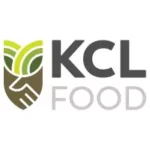Protein bars are convenient snacks designed to provide a high protein content, typically ranging from 10 to 40 grams per serving. They also contain varying amounts of carbohydrates and fats, with a calorie range of 150 to 400 per bar. These bars are especially popular among athletes and fitness enthusiasts for their role in supporting muscle recovery, aiding in weight management, and offering on-the-go nutrition. Common ingredients in protein bars include whey, casein, egg whites, or plant-based proteins like soy and pea. They may also contain sugar, oats, nuts, or binders like honey. Protein bars come in different varieties, such as meal replacement, energy, and low-carb options. However, the quality of Protein bars can vary significantly, with some containing added sugars. Therefore, consumers need to read labels carefully.
How big is the protein bar industry?
As per the Market Research Future report, The Protein Bars market is projected to grow from $4.88 billion in 2024 to $7.05 billion by 2030, with a compound annual growth rate (CAGR) of 6.30% during the forecast period (2024-2030).
How to find the best private label and contract manufacturers for protein bars?
To find the best private label and contract manufacturers for protein bars, consider several key factors such as quality, capabilities, certifications, and customer support. Look for protein bar manufacturers that prioritize high-quality, natural ingredients and possess certifications like BRC or ISO. Evaluate their production capabilities, including the types of protein bars they offer (e.g., vegan or gluten-free) and whether they have modern facilities for efficient production. It’s beneficial to choose protein bar private label and contract manufacturers that provide comprehensive services such as product development, packaging, and marketing support, as these can streamline the process from creation to market.


